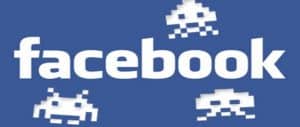This time i did noticed something new, from some of the previous spam type, the victim was sending me spam 2-3 times daily but when the link was reported as spam by someone and Facebook blocked the link. the victim started sending a new spam link. in this case victim have no idea, how to get rid of it….since i know what these links are able to do, i was not going to click it while i was logged into my Account. NOTE: don’t try to click these links.I clicked one of the link to see, what the link was programmed to do, i did actually find some things too.On clicking these links, series of Actions takes place Automatically, which includes click, copy and paste in some cases. the link downloaded a compressed file on my computer, which was having the extension .jpg.zip. on Decompressing the file i was able to see a .exe file which in fact was a malware detected as ‘Trojan.GenericKDV.1206382’. since i know what this malware can do i did not run the executable file. The malware may install some of unwanted java plugins into you internet browser or can operate some of the task itself. and in some serious cases it may cause damage to your computer and data.what we will suggest you to keep your Antivirus Programme Updated and don’t click on any unknown link, if you are able to see it again and again report it as spam and inform the victim.Lets Move to Prevention part:Most of these spams are due to the Above mentioned reason, and some are caused due to, clickjacking: Clickjacking also known as likejacking is caused when a user click on a link is sent to a page which is hiding a like, share or any other button. on clicking anywhere on the page user gets into the prey and accidentally like or share the spam. this spam may get posted to users timeline or in some cases in different groups. Researchers from Zscaler have bulit a javascript bookmarklet which can help to find hidden like and share buttons on any webpage.Thirdparty apps: If you have been into the prey of any spam, first thing you need to check is, did you clicked and allowed access to any strange application accidentally. and to check this go to FB Home —>Account Settings / then click apps in left side bar – You will see the entire list of apps used by you – and remove/block recent/strange applications.If Above steps does not work, simply change your password and login again, and also check your Internet browser for any unusual plugin that may have been installed accidentally.What these spam’s may look like:Most of the time spams uses most searched keywords that are very popular that can include, keywords like scandals, oh my god, yippe you won, congratulatios you won, claim your prize, i got free recharge, she did it in front of.. and many others that attracts users to click it. some time these spams can be in simple text link without any quotes. or from url shorteners like- j.mp/xxxxx, goo.gl/xxxx, tiny.url/xxxx. and lastly fake media player updates.In addition to all these, ‘Prevention is better than cure’,. try never to click on any suspicious link sent by any one or seen in any group or community. if you come to see any spam report it to Facebook, and in case you posted it or sent any where in chat, remove it, and inform your friends about the spam. & Never allow permission to any unknown application.Also see: Learn how to remove malware installed by Facebook spam If you still have any question, let us know in comments below 🙂
